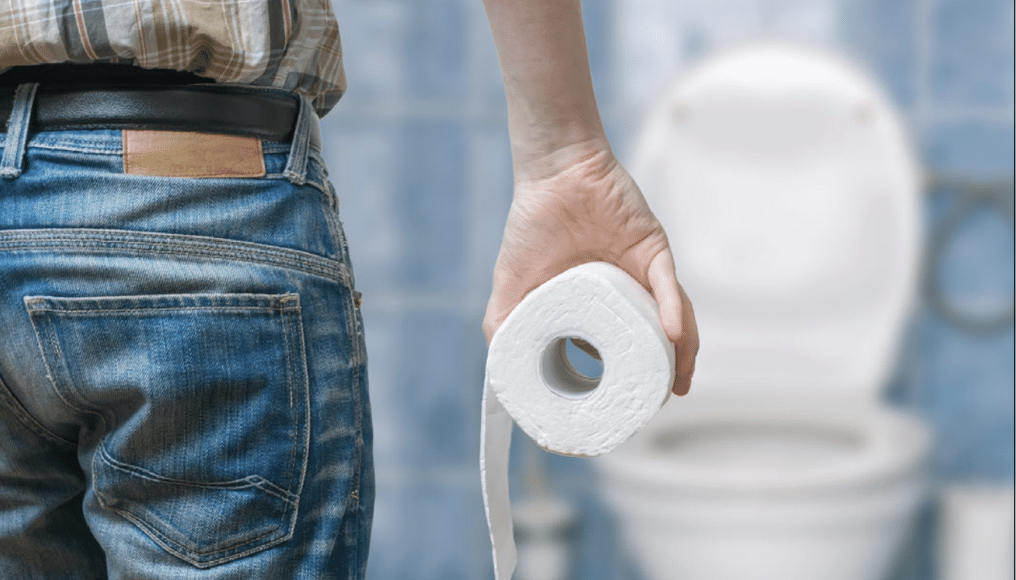Let’s Talk About Constipation (Yes, Really)
 In my pharmacy, I frequently sit down with patients for all kinds of consultations—whether it’s evaluating medications, recommending compounded medication alternatives, suggesting supplements, or helping someone navigate amino acid therapy.
In my pharmacy, I frequently sit down with patients for all kinds of consultations—whether it’s evaluating medications, recommending compounded medication alternatives, suggesting supplements, or helping someone navigate amino acid therapy.
Lately, there’s one topic that keeps coming up, and I realized it needed more attention than I was giving it: bowel movements. Not the most glamorous topic, I know—but so very important. In fact, I recently changed a question on my intake form. It used to ask: Are you experiencing constipation or diarrhea? Now it asks: What is the frequency and consistency of your bowel movements? Why the change? Because I was shocked by how many people think going to the bathroom just three times a week (or less!) is “normal.”
To say your gut is meant to eliminate waste daily is an understatement. Ideally, you should be having a full, healthy bowel movement once or even twice a day. Anything less and your body may be holding onto toxins, hormones, and metabolic waste far longer than it should.
Frequency Matters
The digestive system is essentially the body’s engine of detox. Every time you eat, your gut is not only absorbing nutrients, it is also working to eliminate the things your body no longer needs. When bowel movements are infrequent, waste hangs around too long in the colon, and nutrient absorption is weakened. This can lead to bloating, skin issues, fatigue, headaches, and even more serious health concerns over time.
Consistency Matters, Too
Frequency is only half the story. Consistency gives us insight into what’s happening inside. Ideally, stools should be soft, formed, and easy to pass. For reference, I recommend looking at the Bristol Stool Chart. It’s a terrific visual aid for understanding what “normal” stool should look like. If you’re dealing with hard, pellet-like stools or straining to go, it’s a sign your gut needs support.
What Causes Constipation?
There are a number of reasons someone might be dealing with sluggish digestion:
• Diet: Low fiber intake, high processed food consumption, not drinking enough water—these all slow the digestive tract.
• Food Sensitivities and Allergies: Gluten, dairy, and other common allergens can inflame the gut and affect motility. Even environmental allergies can cause gut inflammation.
• Medications and Supplements: Painkillers, certain antidepressants, antacids, and some supplements, such as iron, are common culprits that can back things up.
• Stress and Hormones: Your gut and brain are closely connected. High stress or imbalanced hormones (like thyroid or sex hormone issues) can slow things down.
• Lack of movement: A sedentary lifestyle reduces blood flow to the gut, which can make digestion sluggish.
The Fiber and Magnesium Fix
Fiber is crucial for regularity, but most people don’t get nearly enough. There are two types:
• Soluble fiber (found in oats, chia seeds, and beans) helps absorb water and forms a gel like substance that keeps things moving smoothly.
• Insoluble fiber (found in vegetables, whole grains, and fruits, especially the peels) acts like a broom for your intestines, helping move things along. If you’re adding fiber to your diet, don’t forget the water. Fiber without enough hydration can actually make constipation worse.
And here’s a lesser-known hero: magnesium. Many people are low in magnesium without realizing it. This essential mineral helps relax the muscles in your digestive tract and supports healthy peristalsis (the wave-like movement that moves stool through your colon). Magnesium citrate or glycinate can be especially helpful for gentle, natural relief. Fiber and magnesium together are a powerful one-two punch for getting things back on track.
My Final Thoughts
If you’re not going every day or if going is uncomfortable, painful, or feels as though you’re just not getting enough elimination, it’s time to do something about it. Talk to your provider, or get a consultation from your pharmacist. Don’t be embarrassed. Constipation is extremely common, but it’s not something we should accept as “just how my body works.”
In my consultations, bowel habits are now one of the first things we discuss because how you eliminate says so much about how you’re functioning on the inside.
So let’s normalize talking about it. Let’s ask better questions. And let’s get things moving—literally.
RELATED ARTICLES
Let’s Get Back To Basics
An easy guide to getting back to basics with your health.
Magnesium to the Rescue; Part 1
Common Signs and Symptoms of a Magnesium Deficiency By Koby Taylor, PharmD In recent years and...
RELATED PRODUCTS
Click any product below for details and to visit our online store.
-

Bio-Zyme
$40.98 -

L-Glutamine
$26.98 -

Triple Action Pro
Price range: $26.98 through $67.98 -

MegaSporeBiotic™ 60ct
$63.00 -

Digestive Enzymes with Betaine 90ct
$35.98 -

ZymeBoost+ 180ct
$70.00 -

Ortho Spore IG™
Login to Order -

Intestin-ol
Login to Order -

Candicid Forte
Login to Order -

Cardio B
Login to Order -

Cerenity
Login to Order -

CitraNox
Login to Order -

CM Core
Login to Order -

CopaCalm
Login to Order -

Cosmedix
Login to Order -

DG Protect
Login to Order -

Diaxinol
Login to Order -

Digestzyme-V 90
Login to Order -

Digestzyme-V 180
Login to Order -

Femarin
Login to Order




